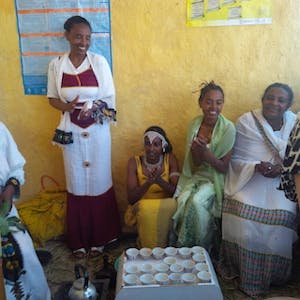By Guest Blogger: Lindsey Horvath, community activist in Los Angeles and a Global Coordinator for the V-Day One Billion Rising Campaign.
One in three. That’s how many women will face some form of violence in their lifetime. As we recognize the International Day for Elimination of Violence against Women this week, we will likely hear tragic stories of physical battering, sexual assault, emotional or psychological abuse, and financial abuse, which are some of the most common forms of violence. But there is another form of abuse that you may not hear about: The denial of sexual and reproductive health and rights.
There are few things more fundamental to one’s safety and well-being than sexual and reproductive health and rights. Yet every day millions of girls and women are denied access to quality family planning services and education; denied the right to control when, whether, and with whom they engage in sex; and denied the ability to have safe and healthy pregnancies. This is a devastating reality for women across the globe. More than 222 million women around the world who want to avoid or delay pregnancy are not using modern contraceptives. In developing countries, approximately 80 million women had an unintended pregnancy in 2012. One in four of those pregnancies ended with an unsafe abortion.

Sometimes a woman fears saying “no” to her partner because of repeated intimidation and threats. Sometimes a partner will prevent a woman from using modern contraception or will not allow her to make the trip to the health clinic. Data from 33 developing countries reveal that almost a third of women and girls cannot refuse sex with their partners, and more than 41 percent say they could not ask their partners to use a condom.
When a woman is denied access to quality reproductive health care, it can be a matter of life and death. Around the world, approximately 800 women and girls die every day from preventable causes related to pregnancy and childbirth; young girls face a higher risk of complications and death as a result pregnancy. In fact, pregnancy is a leading cause of death of adolescent girls in many countries. Sadly, many of these deaths are a result of early and forced marriage, causing girls to become pregnant before their bodies are ready. And these unintended pregnancies mean girls often must drop out of school and can’t pursue an income to support themselves, leaving them more vulnerable to future violence.
Now, as we are in the midst of 16 consecutive days of activism to call for an end to all forms of gender-based violence, we must raise our voices for girls and women around the world to end the denial of quality reproductive health care. It is no coincidence that the culmination of this journey is December 10, which is Human Rights Day. Every girl and woman has the right to be healthy, safe, and empowered; and it starts with reproductive health care.
Today, we are calling upon global leaders – especially in the United States, which is the largest bilateral funder of international family planning services in the world – to strengthen their commitment to providing family planning services to women and girls. The approach to family planning must be holistic: age-appropriate education, medical care, and affordable access to contraceptives. During these 16 days of activism, let’s all support the vital work of the United Nations and family planning initiatives throughout the world. Not only will you help to end the cycle of violence against girls – you can help save lives.



 View All Blog Posts
View All Blog Posts